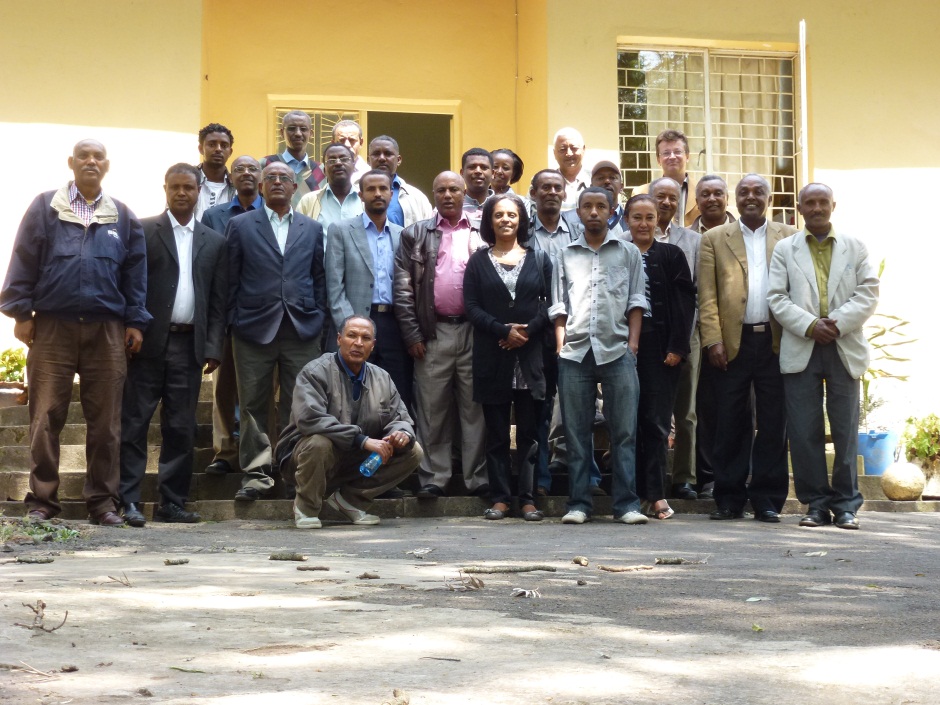2011, October: Successful baseline study start-up meeting
The aim of Work Package E of PRRP Ethiopia is to execute a study on the overall impact of the new pesticide (post)registration system. At the start of PRRP-Ethiopia a baseline study will be conducted that investigates the state of things before the project has had an impact in Ethiopia. After five to ten years the same study will be repeated to assess the impact of PRRP, i.e., the impact study. The baseline and impact studies will focus on registered pesticides before and after the implementation of the new registration system, pesticide use by farmers, capacity building of health professionals, farmer knowledge, empty container management, environmental risk of pesticides, risk on human health, and knowledge of pesticide users (retailers, applicators, etc.).
From 3-7 October 2011 a workshop was held in Debre Zeyit to discuss all the ins and outs of the baseline study. This baseline study startup meeting was well attended by more than 30 participants of different Ethiopian institutions such as the Ministry of Agriculture, the Ethiopian Institute of Agricultural Research, Bureaus of Agriculture and Rural Development from different regions, federal and regional representatives of the Environmental Protection Authority, the Food Medicine and Health Administration and Control Authority, the Ethiopian Standard Agency, the Addis Ababa Trade and Development Bureau, various universities and the international Desert Locust Control Organization for East Africa. The workshop was organised by Bekele Dinku (national expert, APHRD, MoA), Alemayehu Woldemanuel (national project co-ordinator, APHRD) and Joost Lahr (Alterra-Wageningen UR, The Netherlands).

On its opening day, the meeting was broadcast on national television in both the English language and Amharic news. Several experts that participated in the workshop commented on pesticide problems in Ethiopia and on the importance of the new Ethiopian proclamation on pesticides. The television showed images of old stockpiles of pesticides in Ethiopia to accompany the news item.
During the first part of the baseline study startup meeting the participants informed each other about the work on pesticides conducted by their individual institutions. This was perhaps one of the first occasions during which so many Ethiopian institutions exchanged their views and ideas about pesticide-related problems and the possible solutions. The discussions were very lively. During the second part of the workshop the participants were put to work by the organisers of the meeting in order to discuss the design of the baseline study. The participants came up with a great number of recommendations that will be very important for carrying out the study. A detailed plan will be written during the coming months.
More information about the baseline study start-up meeting and the presentations:



